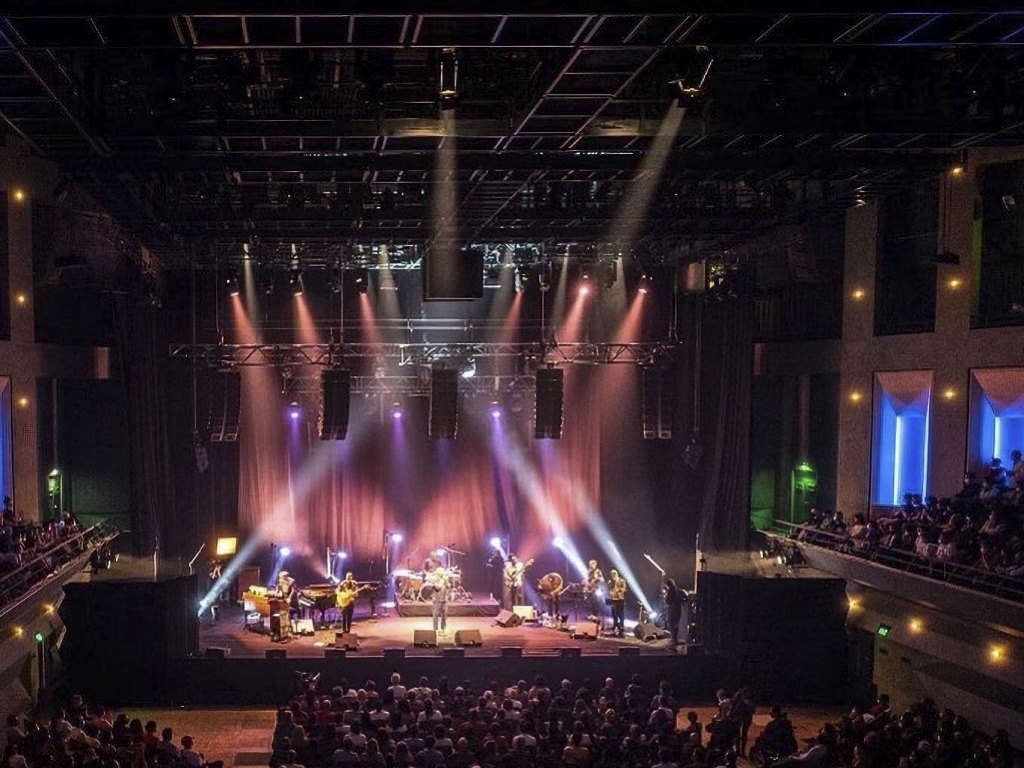Over 30,000 jazz enthusiasts come together for 11 days of musical celebration at the annual Paris jazz festival, delivered in immersive audio
PARIS, France – October 2021 – Each September, thousands of jazz fans descend on the third largest park in Paris, The Parc de la Villette, to enjoy the renowned festival Jazz à La Villette. The festival, which highlights the most prominent artists of the moment and the many jazz styles, also looks back at the history of this musical genre, often paying tribute to a particularly important year or an inspiring musician. With sets from an exceptional roster of artists, this year’s festival presented a sharp and eclectic program that opened new audio perspectives thanks to L-Acoustics L-ISA Hyperreal Sound technology.
Cité de la Musique, one of two buildings comprising the Philharmonie de Paris, was one of the key venues for the festival. Emmanuelle Corbeau, Deputy Head of the Audio-Visual Department at the Philharmonie de Paris, managed the L-ISA deployment at the Cité de la Musique’s Salle des Concerts (Concert Hall).
“I have been fascinated by sound spatialization for as long as I can remember. But initially working as an in-ear monitor engineer, I didn’t get many opportunities to play with that technology, apart from looking into some binaural research available at the time,” says Corbeau. “When I joined the Philharmonie de Paris in 2015 as their front-of-house engineer, it opened up a new world of possibilities in spatialized sound for me. One day, a friend of mine, who was mixing a Bubble in 23.1 for L-Acoustics Creations Island, mentioned that it was much easier to mix with L-ISA ‘because everything was so natural.’ This really made me want to get my hands on L-ISA technology and have my own experience with it.”
Having seen some L-ISA demos at tradeshows and exhibitions, Corbeau first enrolled in a dedicated spatialized sound course with the CFPTS (Centre de Formation Professionnel de Technique de Spectacle), where she was able to get a general overview of spatialized technologies with L-Acoustics’ Etienne Corteel teaching the L-ISA section. Corbeau then experienced her first live show in L-ISA at the Cité de la Musique in 2019, leading the entire project with support from L-Acoustics.
“The event was an electronic music concert and was a great success. So much so that I was determined to use L-ISA again!” exclaims Corbeau. She and the team from the Philharmonie went on to explore the full potential of L-ISA technology, attending a dedicated training session led by L-Acoustics head of application projects, Arnaud Delorme.
The opportunity for Corbeau to use her training soon presented itself with this year’s Jazz à La Villette festival. It was a perfect platform for the L-ISA technology to open performers to new perspectives and create a natural and vibrant listening experience for jazz fans.
The Philharmonie has L-Acoustics K2 and Kara systems permanently installed in both venues. Corbeau utilized the Kara cabinets in Cité de la Musique, supplementing them with additional cabinets from rental and installation specialists Audiolive to deliver a complete L-ISA Scene system. Additional cabinets were used as ‘spatial fills,’ a new feature from L-Acoustics that creates a virtual replica of the Scene System where cross-coverage cannot be physically achieved, then using gain/delay-based algorithms for positioning audio objects, thus improving object separation, coverage, and level consistency.
Having just one day to set everything up, Delorme had assisted Corbeau with the design element before the event. “Although the training I’ve had meant that I was able to handle the setup myself, it was a nice feeling to know I had a ‘safety net’ in case of any issues,” she adds.
“The L-Acoustics team is always ready to support shows, especially with L-ISA, but to be honest, my job was easy here,” says Delorme. “Emmanuelle handled it beautifully, from design to mix, thanks to her talent and to the intuitive nature of L-ISA, which makes it easy to switch from a classic stereo configuration to immersive.”
The final configuration for the oval-shaped Concert Hall comprised a main L-ISA Scene system of five hangs of eight Kara each, evenly distributed across the front of the stage, with two hangs of two A10 (one Wide, one Focus) for outfill. Spatial fills comprised eight stacks of one Kiva II, evenly spaced across the front of the stage, with six facing directly forward with the two outer Kiva II angled towards the side seating. Surround was covered by four 115XT, spaced evenly around the auditorium above the balcony level, suspended from trussing.
Corbeau was on hand to assist visiting audio engineers while also working as a FOH mix engineer for some of the acts. “I mixed two very different performances – one was a jazz quartet with a very natural sound, the other was a performance with a lot of energy, so a lot of SPL was needed,” says Corbeau. “A major advantage for both is that object-based mixing is so much easier for the brain to process, compared to stereo, and provides a much more pleasant listening experience.”
“I found the L-ISA 3D mixing environment really intuitive and straightforward,” explains Corbeau. “Being fairly accustomed to the L-Acoustics workflow and tools such as Soundvision and LA Network Manager definitely helped when deploying the technology for the festival, but I also remember one of the musicians in the L-ISA course saying the L-ISA Controller was a really easy tool to use, even without previous experience or technical knowledge.”
Some of the visiting sound engineers were especially pleased with how easy it was to use the L-ISA Controller and with how they could place and unmask the sources. “One of the engineers, in particular, was mixing a really loud performance, which worked exceptionally well in L-ISA, as with multiple sources, it’s easy to go from low to high SPL without it being fatiguing for the listener, which was reassuring to him,” notes Corbeau.
“One of the most beautiful things about L-ISA is that it literally envelops the person in a 3D soundscape, so you feel as if the music is not just in front of you, you’re surrounded by it,” Corbeau continues. “Both the technical director at Philharmonie de Paris and the technical manager of the venue told me that it was much easier for them to hear the nuances between different instruments, so they could go deeper into the sound layers and really appreciate the full scale of the musical performance.” After 11 days of jazz-filled moments with some of the most renowned and talented musicians, there is one thing that Corbeau says she will miss. “It was such a great experience using L-ISA for Jazz à La Villette that I find it difficult going back to mixing stereo,” she smiles. “I truly think it’s worth learning this new language of object-based mixing, as it’s the future of sound. I hope we can repeat this amazing experience with L-ISA next year and for many years to come.”
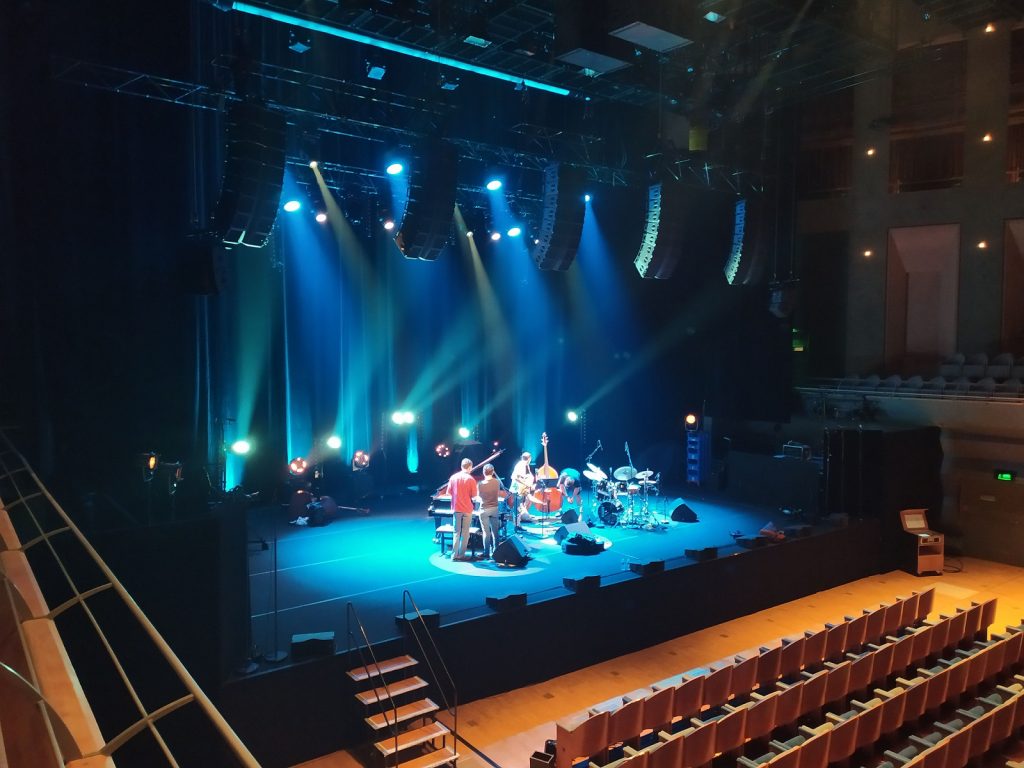
The main L-ISA Scene system comprises main hangs of L-Acoustics Kara with A10 for out-fill, Kiva II for spatial fills and 115XT for surround. 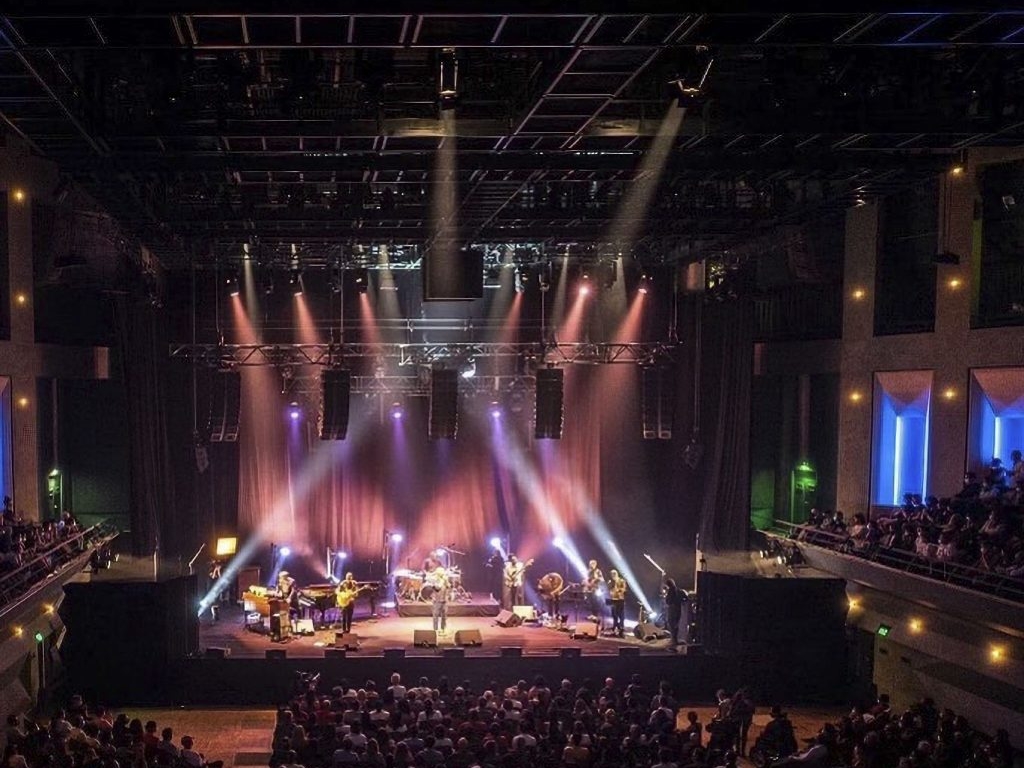
L-ISA Hyperreal Sound technology opened up new audio perspectives for Jazz à La Villette audiences at Cité de la Musique. 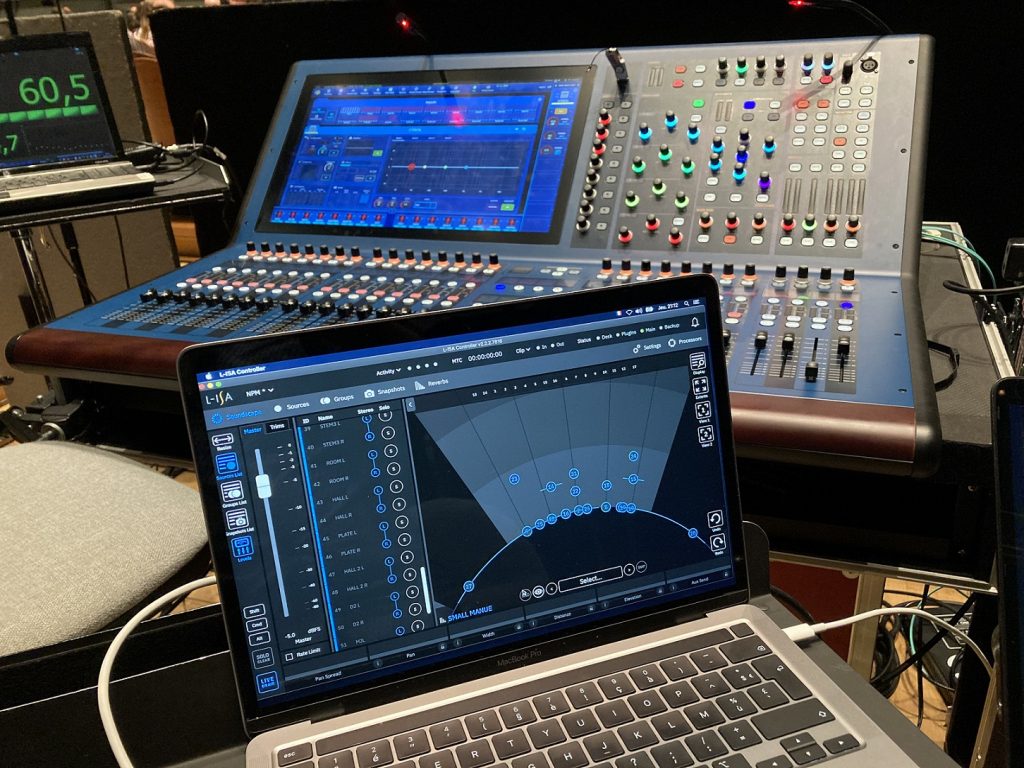
L-ISA Controller provided an intuitive and straightforward mixing environment. 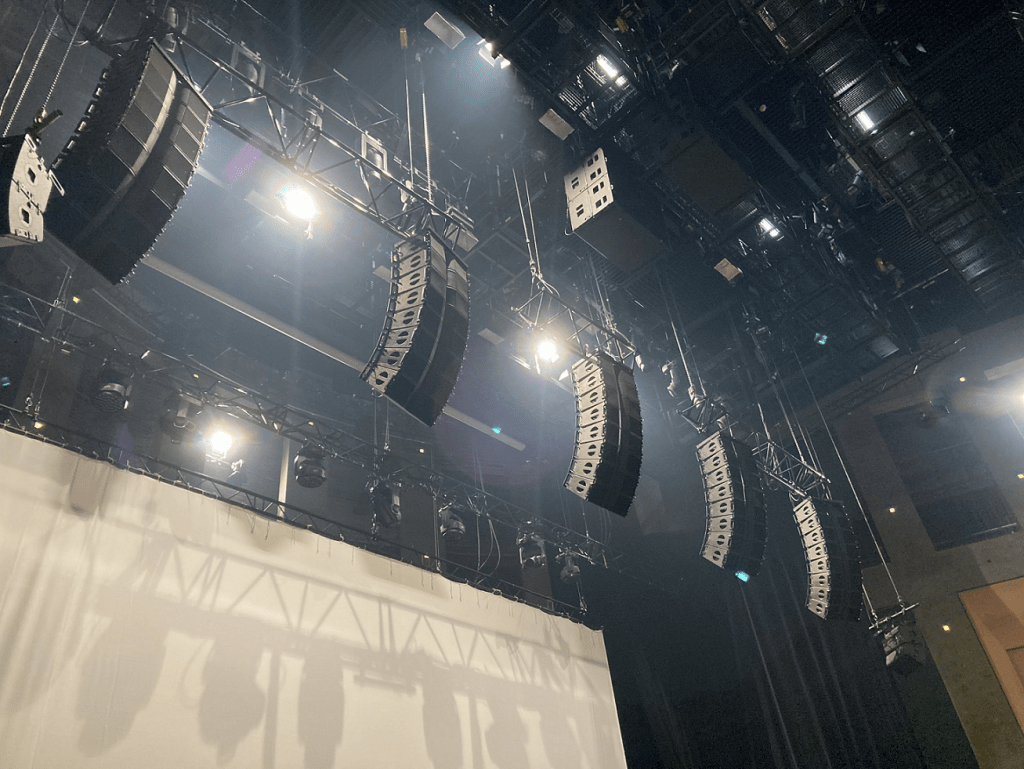
Five hangs of eight L-Acoustics Kara are evenly distributed across the front of the Cité de la Musique stage.
